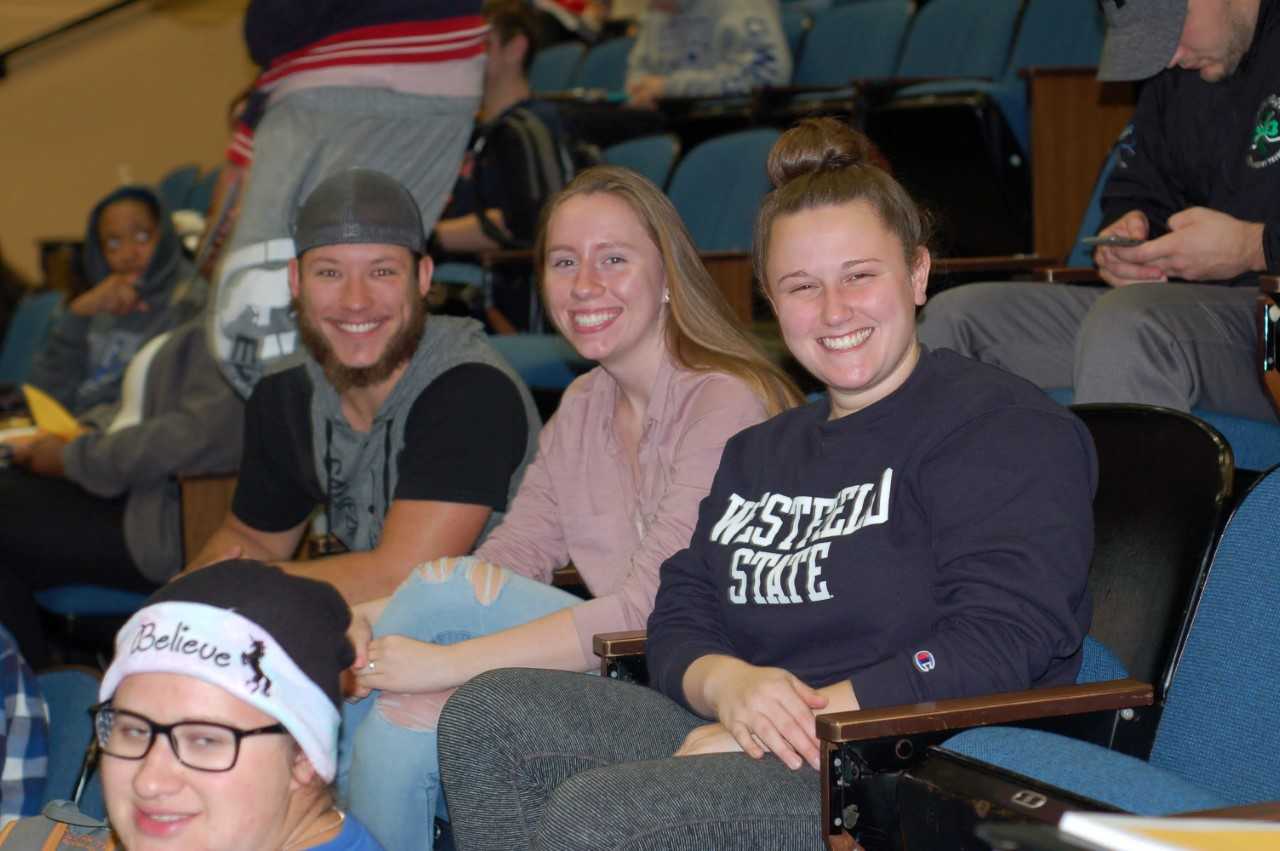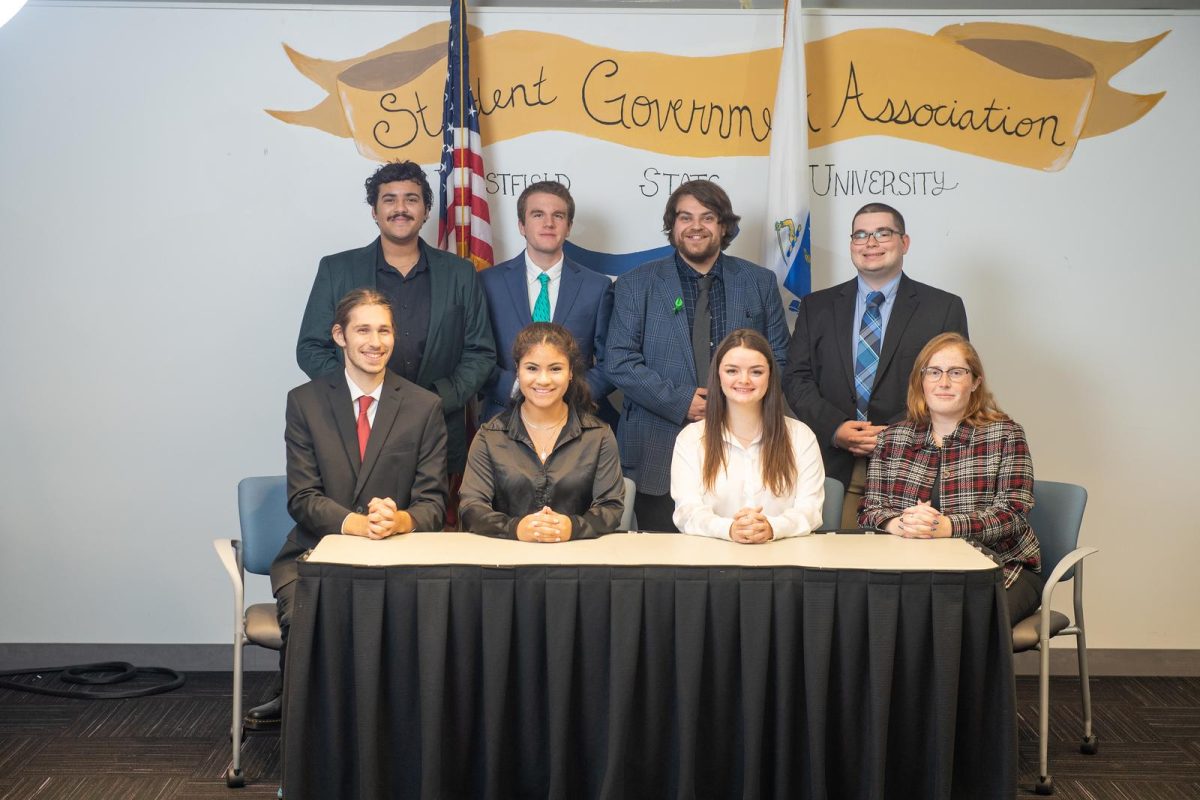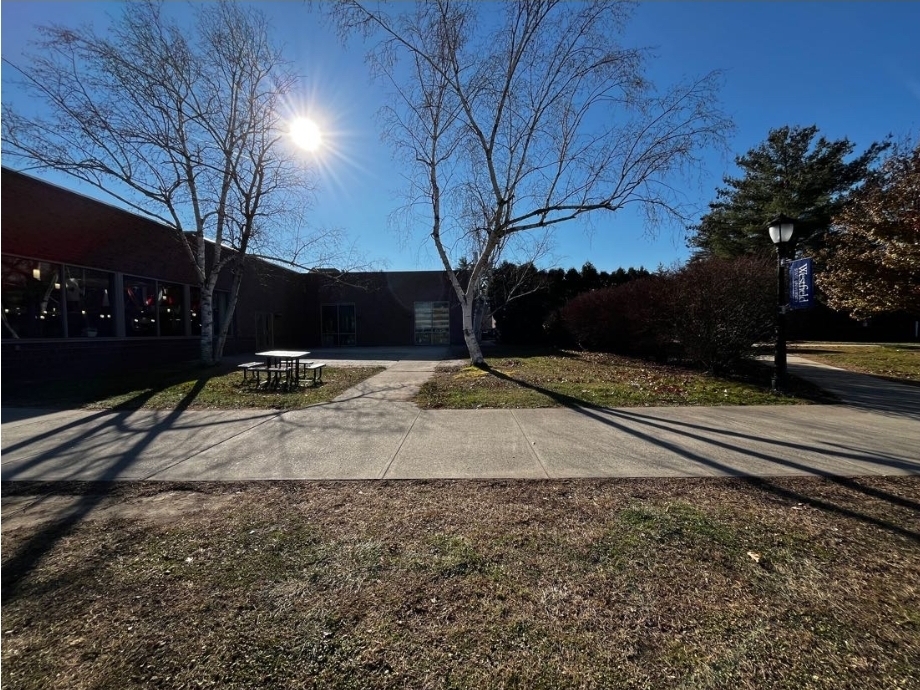“Humankind has always strived to unlock the celestial secrets of our closest planetary neighbor. We have come a long way since early astronomers gazed through simple telescopes and theorized about massive canals on the Red Planet. Orbital satellites have begun to map its surface in detail and nuclear-powered rovers are working to unlock the chemical and geologic secrets.” (Voyage To Mars: Red Planet Chemistry website)
On Oct. 23, Westfield State University’s chemistry honors society hosted the live webinar “Voyage to Mars – Red Planet Chemistry” in Wilson Auditorium A. The webinar was shown at schools around the nation, provided by the American Chemical Society (ACS).
The webinar was a crash course about space technology as it relates to Mars exploration, and what challenges must be overcome in order to land humans on the Red Planet.
“Voyage to Mars – Red Planet Chemistry” took steps to improve access and modernize scientific education. Everything needed to host the webinar, including outreach materials and raffle prizes, were shipped to honors societies and ACS chapters throughout the nation. This preparation enabled hundreds of students to engage in a free science event simultaneously.
“Voyage to Mars” utilized social media to reach students during the session. ACS took questions from students in real time via Twitter, and relayed them to the panel of scientists, who could answer them immediately in a dynamic hybrid of online – live action learning. The program also included space trivia questions, in which students could tweet their responses.

Photo by chemistry professor Maria Carranza
In addition, presentations from scientists used video clips of space travel and animations to break down complex scenarios. In that respect, it was similar to the popular “Crash Course” series of Youtube tutorials, except with a live question and answer segment at the end.
The technological hurdles of sending a human to Mars are immense – especially since the spacecraft must be self-sufficient for at least 18 months.
Research featured in “Voyage to Mars” included water and food waste reclamation, survival techniques to brave space radiation, and strategies for living in a totally zero waste micro-environment.
Eventually some of this research could be applied to life on Earth. For example, new materials and recycling techniques used aboard space missions could help cut down on the amount of landfill waste produced.
Currently there are no clear plans to send a human to Mars. The next Mars mission is planned for 2020, and expects to retrieve samples of Martian rock for analysis back here on Earth.
Depending on what minerals are present, future missions may include technologies for mining, and using Mars resources for materials and energy.
Appreciation can be given to Chemistry Professor Maria Carranza and WSU’s Gamma Sigma Epsilon chapter for organizing the event.































